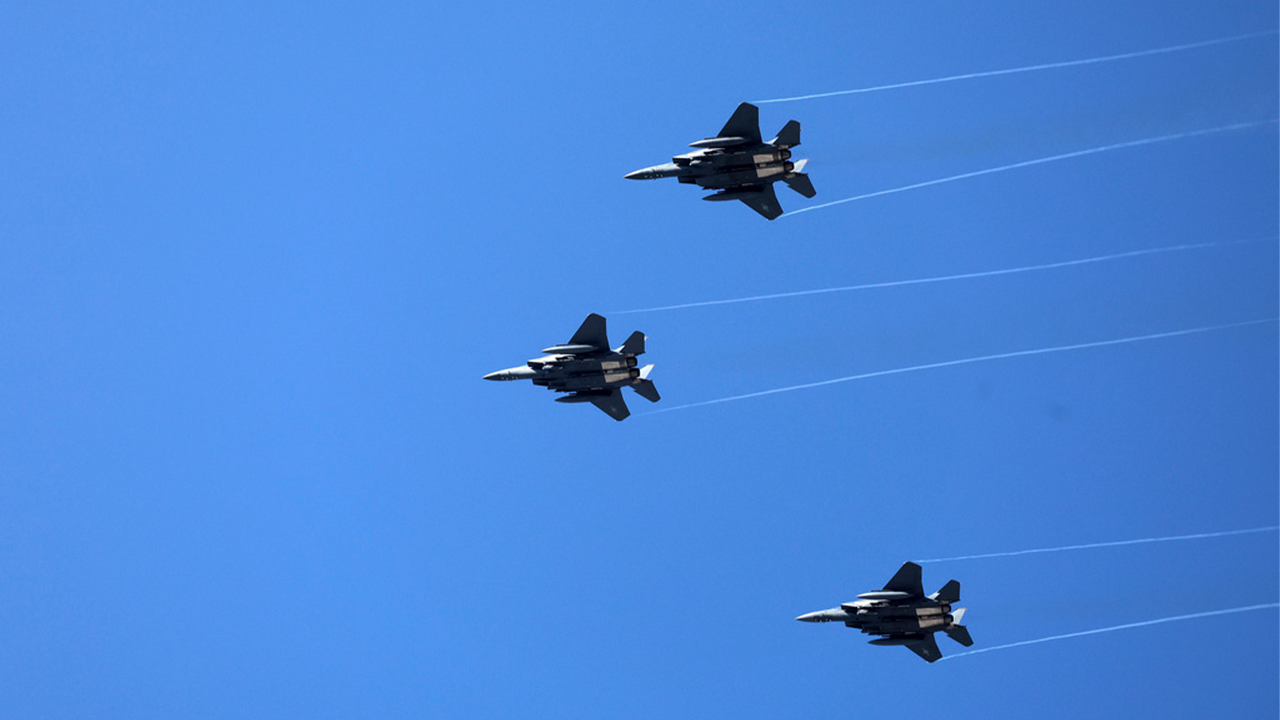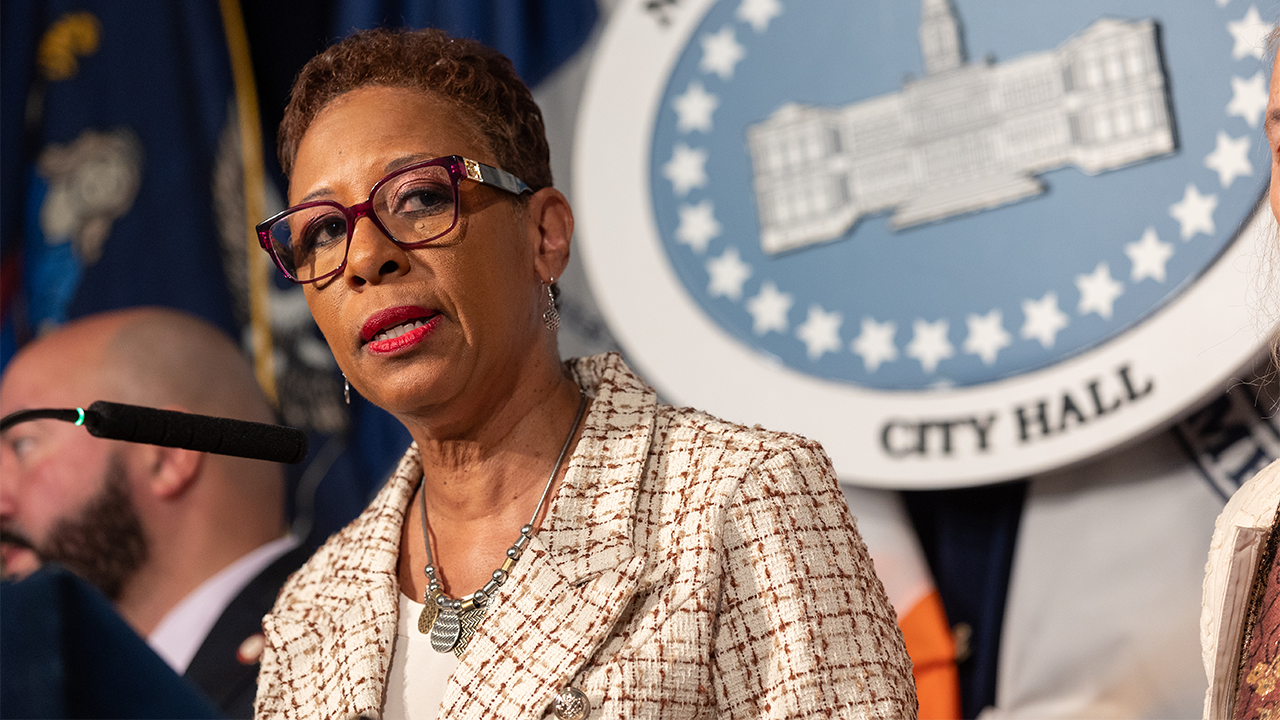Tucked away in the south-east corner of Europe, Moldova’s winters may be dreary and harsh, but the road from the border with Ukraine winds through bleak, brown hills like a ribbon of hope.
For Larysa, who hails from the Donetsk region of Ukraine, the quiet heath means security. It means a pause in the constant artillery barrage, the wailing of sirens and drones, the rush to the bunker, the darkness, the cold, the smell and filth of war. The terror can be put aside and life can begin anew.
When Larysa got off a bus from the border to the International Organization for Migration (IOM) station outside the small town of Palanca, she left the Donetsk region after completing a 2,000-kilometer, three-day journey with her ailing daughter.
Larysa Kirilenko from Donetsk and her daughter have a snack at a stop on the way to Bucharest.
“Mom, will we wake up tomorrow?”
Their conversation, as with everyone who has just left the hell of war behind them, ebbs and flows. Streams follow silence, choked tears and memories too raw. First disbelief, then relief. But she is already planning her next move to Romania.
“When I come to Bucharest, I want to apply for a job, find work, find accommodation,” she says. “The most important thing is that there is no shooting, that it is peaceful and that your child goes to bed without saying: “Mom, will we wake up tomorrow?”.”
Larysa and her daughter are two of a few dozen people sitting around a tent manned by IOM and other organizations. Before the bus embarks on a 10-hour journey to the Romanian capital, there is time for a hot meal, a health check, information for the coming days and weeks, and even a shower.
“When we first came here in late February, immediately after the Russian invasion, there was total chaos at the border,” recalls Lars Johan Lonnback, IOM’s Head of Mission in Moldova. “It was immediately clear to us that in addition to food, shelter, medical care and advice, transport was also urgently needed. Well-meaning volunteers arrived and offered to take vulnerable families – who, you must remember, left their husbands behind in the fight – to Portugal, Norway and Italy. It was completely disorganized and a dream scenario for human traffickers, who always show up when people are most vulnerable.”

Bus to Bucharest
Lonnback was also fully aware that the thousands of people crossing the border would severely strain Moldova’s scarce resources and risk a social crisis. IOM in cooperation with the Moldovan authorities and the UN Refugee Agency (UNHCR), assessed the needs and worked on solutions. The partners quickly set up a special bus service that relieved the border area, protected the vulnerable and added a range of services to the massive relief effort.
In the same way, IOM helps people, especially those most in need – including people with disabilities, the elderly and those who are bedridden – to get to European Union countries by air. To date, more than 15,000 people have entered the European Union by bus and plane with the support of IOM, which Lonnback says has helped avert a difficult situation in Moldova, a country already plagued by poverty and social tensions.
“The bottom line is that the international community continues to help Moldova in any way it can,” he says. “We saw that Ukrainians are proud and resilient, and they really don’t want to leave their homeland. But as attacks on infrastructure mount and snow piles up, living becomes increasingly difficult, just exist. We have a system in place that is flexible and responsive, and we can scale up if large numbers of people flee Ukraine again.”
About 10 percent of those who fled Ukraine via Moldova chose to remain in the country. Many of those who stayed behind came from towns relatively close to the border; have family and friends in Moldova; or they want, like people in every war, to stay close to their homeland.

Four generations uprooted
Svitlana, a 60-year-old real estate agent from Odessa, 40 kilometers from Moldova, is now a mainstay for four generations of women who live in a small house about an hour outside of Chisinau. She speaks slowly, sometimes mechanically, describing the horrors she has seen and heard. Her mother reads quietly while her daughter prepares borscht and her granddaughter sketches.
But she doesn’t cry. Svitlana gives the impression that grief is something she can’t, doesn’t want to take time for. Her husband and sons-in-law are at the forefront and it is her job to run the family alone.
Moldova welcomed her warmly, she says, with humanitarian aid and simple friendliness. She and her daughter are studying Romanian in order to compete in the local job market and use their skills for the benefit of their host country and for themselves. As much as they appreciate the help that has been given to them, they don’t want to make a living from it.
“It’s sustainability through solidarity,” says Margo Baars, IOM’s emergency coordinator in Moldova, describing the organization’s approach. “We provide livelihood support, small business grants, training and transitional housing support especially to get people through this difficult winter. Above all, we provide psychological support because the people have been through a lot and need more than just material help.”
Old men leave Ukraine together with their mothers, small children and grandmothers. Yurii, 73, vividly remembers his parents talking about World War II and never imagined he would see such death and destruction in his homeland. “It’s terrible,” he says. “Sacrifices are made every day. Every day. There are so many victims, so much grief, so many people suffering.”
Five-month-old Ivan, conceived in peace and born in Ukraine during the war, is now safe with his mother, Ksenia, in Moldova. Very pregnant, Ksenia was walking through a minefield when cluster bombs rained down. She fell but managed to escape, leaving a birthmark on Ivan as a reminder of the day they both cheated death.
“I want this war to end so that I can fully enjoy motherhood,” says Ksenia. “I think without Ivan I would have gone mad in this war. He’s the one who lit up all the horrors.”
In this cold, miserable field, her own smile is a ray of sunshine.





